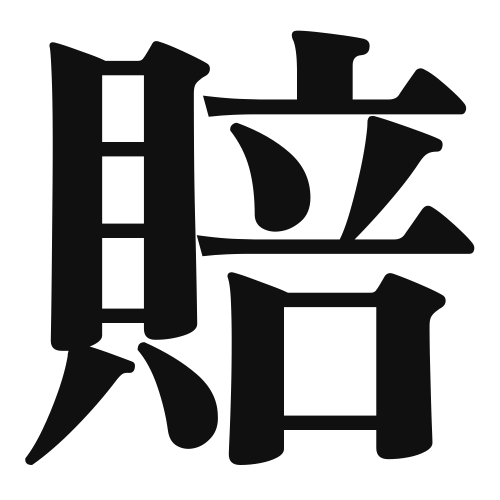1. Overview of Meaning
The kanji “賠” (bai) generally means “to compensate” or “to indemnify.” It is often used in contexts related to financial compensation or restitution for damages or losses.
2. Formation and Radical
Formation of the Kanji: The kanji “賠” is a phonetic compound (形声文字), which combines the meaning of “money” (the left part, “賤”) with a phonetic component that suggests its pronunciation.
Radical: The radical of “賠” is “貝” (shell), which is commonly associated with money or valuables in kanji.
3. Examples of Usage
Common Words and Phrases:
- 賠償 (ばいしょう, baishou) – compensation
- 賠償金 (ばいしょうきん, baishoukin) – compensation money
Example Sentences in Daily Conversation:
- 事故のため、彼は賠償金を受け取った。 (Due to the accident, he received compensation money.)
- 会社は顧客に対して賠償を行う必要がある。 (The company needs to provide compensation to the customer.)
4. Synonyms and Antonyms
Similar Kanji:
- 補償 (ほしょう, hoshou) – compensation, which often implies a broader context of making up for a loss.
- 返済 (へんさい, hensai) – repayment, which specifically refers to paying back a debt.
Antonyms:
- 損失 (そんしつ, sonshitsu) – loss, which indicates a negative outcome rather than compensation.
5. Cultural and Historical Background
Relation to Japanese Culture: The concept of compensation is significant in Japanese culture, reflecting the importance of responsibility and harmony in social interactions.
Proverbs and Idioms:
- 「損して得取れ」 (son shite etoru) – “Sometimes you have to incur a loss to gain something,” which relates to the idea of compensation and making amends.
